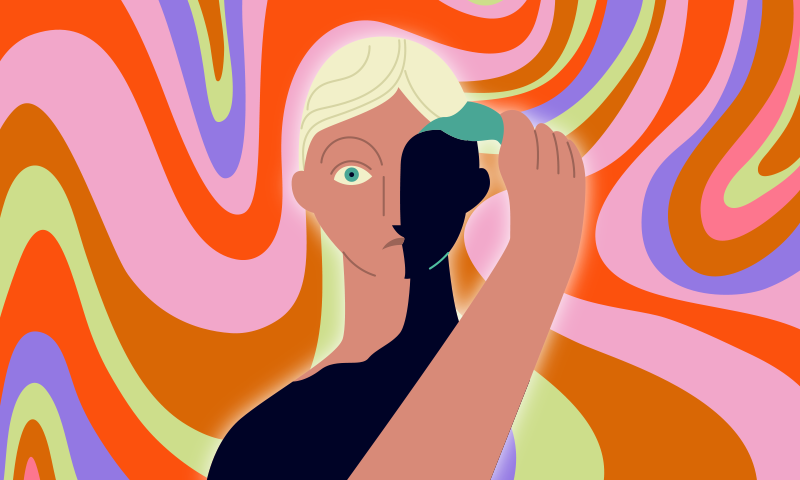The Bad Trip Detective

🌈 Abstract
The article discusses the potential risks and negative effects associated with the use of psychedelic drugs, particularly the phenomenon of "bad trips" and their lasting impact on individuals. It highlights the experiences of Jules Evans, a researcher who had a traumatic first encounter with psychedelics and later decided to explore the topic further. The article also presents findings from a survey conducted by Evans and his colleagues, which shed light on the various psychological and physiological challenges that some individuals face after taking psychedelics.
🙋 Q&A
[01] The Psychedelic Renaissance and Potential Risks
1. What are the key points discussed about the psychedelic renaissance and the potential risks associated with psychedelic drug use?
- The article discusses the growing popularity of psychedelic drugs, with the National Institutes of Health's "Monitoring the Future" study observing that hallucinogen use had hit an all-time high in 2021 among US adults aged 19-30.
- Despite the scientific and cultural enthusiasm for the therapeutic potential of psychedelics, the article notes that little attention has been paid to the phenomenon of "bad trips" and their after-effects.
- The article suggests that the most serious effects of psychedelic use may be vastly underreported in clinical trials, as some studies have found that a significant percentage of adverse events are not reported in published articles.
2. What are the potential risks and negative effects associated with psychedelic drug use that the article highlights?
- The article mentions that while the majority of psychedelic users do not have a difficult or distressing experience, for a small percentage, the after-effects can be quite serious, including thoughts or attempts of hurting themselves or others, and seeking psychiatric help.
- The article also discusses Hallucinogen Persisting Perception Disorder, which involves flashbacks of visual disturbances that first arose during a hallucinogenic trip.
- The article suggests that the risk of psychosis may also be underestimated in the research literature, as older reports of psychosis led modern psychedelic researchers to exclude participants with a family history of psychotic spectrum illness from their studies.
[02] The "Challenging Psychedelics Project" and Findings
1. What was the goal of the "Challenging Psychedelics Project" launched by Jules Evans and his colleagues?
- The article states that the "Challenging Psychedelics Project" was launched by Evans and his colleagues to collect data and written narratives about the negative experiences and after-effects that some individuals have faced following psychedelic trips.
2. What were some of the key findings from the survey conducted as part of the "Challenging Psychedelics Project"?
- The survey received responses from 608 individuals from around the world, who reported experiencing difficulties for at least a day following a psychedelic trip.
- The majority (about 75%) experienced emotional difficulties, primarily anxiety and fear, but also depression.
- Almost half struggled with existential confusion and "derealization," the sense that everything was unreal.
- Others experienced issues related to self-perception, such as excessive self-consciousness or "depersonalization."
- Some respondents also reported social difficulties, sleep problems, nightmares, and other physiological symptoms.
- For many respondents, the negative effects lingered for months or even years, and the lack of information about what was happening to them only increased their distress.
- Surprisingly, the negative effects were not limited to those who took psychedelics in an uncontrolled setting, as around 8% of the respondents had taken the drugs as part of a clinical trial or psychedelic therapy session.
3. How did the findings of the "Challenging Psychedelics Project" challenge the "set and setting" hypothesis of psychedelics?
- The article states that the findings challenge the "set and setting" hypothesis, which suggests that the intensity and duration of bad after-effects can be shaped by lack of preparedness, negative mindset, or a lack of psychological support.
- The survey found that a prior diagnosis of mental illness did not predict the duration or variety of enduring difficulties, contradicting the "set and setting" hypothesis.
4. What is the author's stance on psychedelics based on the findings of the "Challenging Psychedelics Project"?
- The article states that the author, Jules Evans, does not advocate against psychedelics, but rather aims to temper the prevalent ethos of breezy optimism with a dash of caution by exposing the hazards that tripping could involve.